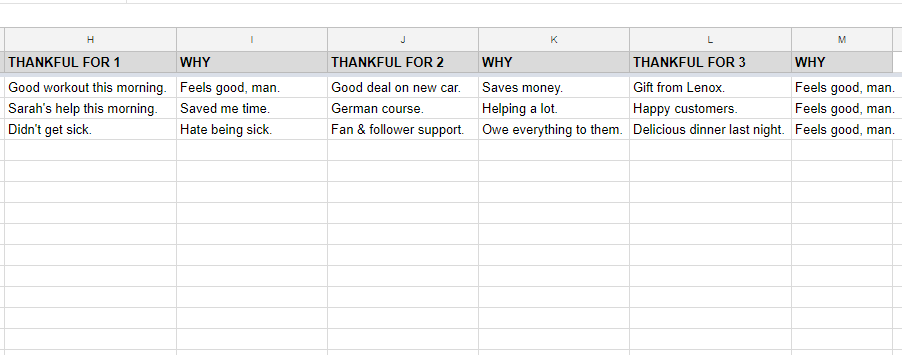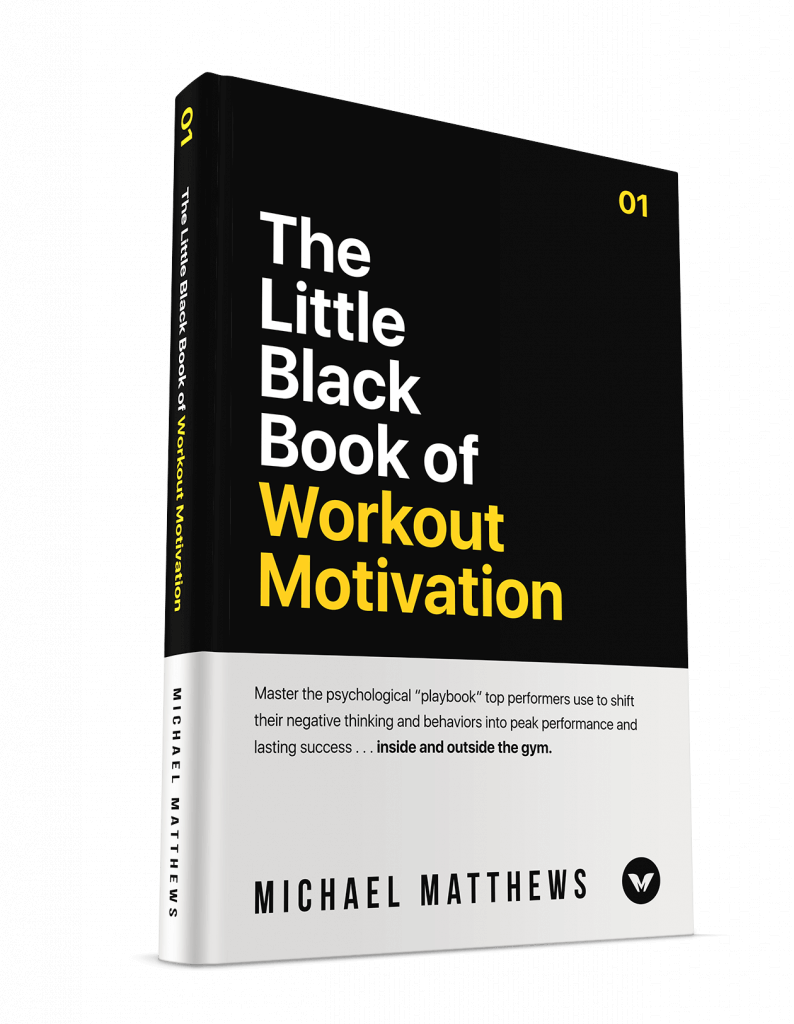Want to listen to more stuff like this? Check out my podcast!
Not what we have, but what we enjoy, constitutes our abundance.
—EPICURUS
In 2009, the stand-up comedian Louis C.K. appeared on Conan O’Brien’s show to rant about how little we appreciate the technological wonders that make our lives amazing.
“We live in an amazing, amazing world,” he said, “and it’s wasted on the crappiest generation of spoiled idiots that just don’t care.” On people frustrated when media loads too slowly on their phones: “Give it a second! It’s going to space! Can you give it a second to get back from space!?” On people griping about flight delays: “Did you partake in the miracle of human flight, you non-contributing zero?! You got to fly! It’s amazing! Everybody on every plane should just constantly be going ‘Oh, my God! Wow!’ You’re flying! You’re sitting in a chair, in the sky!”
Laughs aside, he has a point. We live in a technological wonderland that our recent ancestors couldn’t have imagined in their wildest fantasies, yet anxiety, stress, dissatisfaction, and depression have been on eighty-year upswings, and are at all-time highs among younger generations in particular. How could unprecedented ease, luxury, and relative economic prosperity be contributing to this decline in our collective happiness and well-being?
Research points in many directions, ranging from the perversion of values (the growing obsession with fame, money, and image, for example), to the delaying of marriage and childrearing (according to a seventy-five-year study conducted by scientists at Harvard, the biggest predictor of long-term happiness and fulfillment is the quality of your relationships), the overuse of social media, and more.
Accordingly, there are many things we can do to lift our spirits—we can stop trying to keep up with the Joneses, work harder to find and foster meaningful relationships, and spend less time on Facebook and more with people we like—but there’s one thing in particular that outshines them all, and it’s incredibly simple. It’s gratitude.
According to Dr. Robert A. Emmons in his 2013 book Gratitude Works!: A 21-Day Program for Creating Emotional Prosperity:
Gratitude has one of the strongest links to mental health and satisfaction with life of any personality trait—more so than even optimism, hope, or compassion. Grateful people experience higher levels of positive emotions such as joy, enthusiasm, love, happiness, and optimism, and gratitude as a discipline protects us from the destructive impulses of envy, resentment, greed, and bitterness. People who experience gratitude can cope more effectively with everyday stress, show increased resilience in the face of trauma-induced stress, recover more quickly from illness, and enjoy more robust physical health.
In other words, the more thankful we are for anything and everything, the better our lives are going to be in just about every way. We’re going to feel less stressed and depressed, our risk of chronic disease is going to drop, we’re going to be less likely to overeat, and we’re going to sleep better, to name a few.
Gratitude is remarkably easy to do too. Stop reading for a moment, and reflect on the question, “What happened last week that I’m thankful for?” Find five things.
Done?
Great, because research conducted by scientists at the University of California shows that this is all it takes to immediately and favorably alter your brain chemistry, even if you can’t find anything. Just searching for something to be thankful for is enough to lift your mood. But we should always be able to find something, even if it’s just having clear air to breathe, people who love us, or a comfortable bed to sleep in.
Furthermore, the more often we practice gratitude, the easier and easier it becomes to find things to appreciate. As scientists say, “neurons that fire together wire together,” and so the more we stimulate the neural pathways involved in feeling grateful, the more robust and efficient they become.
If you want to experience this for yourself, all you have to do is start keeping a gratitude journal. Here’s how Martin Seligman explained it in his 2012 book Flourish: A Visionary New Understanding of Happiness and Well-being:
Every night for the next week, set aside ten minutes before you go to sleep. Write down three things that went well today and why they went well . . . Writing about why the positive events in your life happened may seem awkward at first, but please stick with it for one week. It will get easier. The odds are that you will be less depressed, happier, and addicted to this exercise six months from now.
Incredibly, a study conducted by scientists at Hofstra University found that this five-minute daily habit can increase your long-term well-being by as much as 10 percent, which is comparable to the emotional effects of doubling your income.
In another study conducted by researchers at the University of California, participants who wrote down five things in the previous week that they were grateful for for ten weeks felt 13 percent happier by the end of the experiment. They were more optimistic about the future and satisfied with their lives, and even spent more time exercising.
In yet another example of the power of the gratitude journal, a study conducted by scientists at the University of Pennsylvania had participants do the same type of writing exercise for just a few minutes per week. After several weeks, a number of the participants were happier and less depressed, and these effects persisted for one, three, and even six months afterward. That’s right, in some people, just a week or two of gratitude journaling can provide an emotional lift for six months or even longer.
The things you write in your journal don’t have to be momentous or even meaningful, either; only specific. The key here is the frequency of your writing, not the intensity.
For example, in one of the studies cited above, the types of things people recorded included a sunset through the clouds, the chance to be alive, and the generosity of friends. Your entries can be equally workaday: a delicious bagel at breakfast, a seductive smile from your spouse, or a compliment from your boss are perfectly acceptable entries.
The reason this works is it forces you to repeatedly scan your life for the good, and the more you do this, the more automatic and general this behavior and mindset becomes.
Furthermore, as we can only focus on so much at any given time, the more attention we generally give to the positive things around us, the less attention will go to the negative things, creating an upward spiral effect.
If you want to supercharge the positive effects of your reflection, once you’ve found something to be grateful for, imagine how your life might have been affected had it never happened. For instance, what might your life be like if you had never met your spouse? If you didn’t live in your current neighborhood? If you hadn’t met that stranger who would later become your business partner?
Studies show that this mental exercise of subtracting good things from our lives can help us become more aware of their benefits and therefore more grateful for their presence.
Anticipation is another mood booster that pairs nicely with gratitude journaling, because its effects are often greater than retrospection, and, ironically, sometimes greater than actually experiencing the anticipated events.
You can benefit even further from the gratitude-anticipation duo by doing it first thing in the morning. Research conducted by scientists at the University of Pennsylvania and Ohio State University shows your morning mood tends to color your entire day, so starting off by looking for things to be thankful for and look forward to is a powerful way to get more productivity and pleasure out of your life.
Here’s how I put all this into use: I have a Google Sheet called “Daily Positivity,” which is formatted like this:
 And so you can see the details:
And so you can see the details:


(You can find a blank copy of this template here. Go to File>Make a Copy if you want to edit the sheet.)
And every morning at 6:30 a.m., before I head to the gym, I fill it out. I write down three things I’m looking forward to that day, and why, as well as three things I’m thankful for, and why.
For instance, my recent “anticipation” entries include:
- A post-workout cappuccino, because it’s delicious.
- Seeing the previous day’s sales numbers for my supplement company, Legion Athletics, because we had a sale and they always do well.
- Having sex with my wife after the kiddos are asleep (low-hanging fruit, I know, but hey, whatever works, right?), because it’s a fun way to improve our relationship.
And my recent “thankful” entries include:
- Sleeping well the night before, because it helps with recovery and productivity.
- Having a good flight, because it makes for a nicer day.
- A successful product launch, because it’s a nice payoff for the work that went into it and contributes significantly to our quarterly revenue goal.
And that’s it. This routine takes no more than ten minutes per day, and has noticeably impacted my well-being—and it can do the same for you.
Did you like this article? Want to learn more? Then check out my newest book, The Little Black Book of Workout Motivation!
It’s my personal—and 100% practical and hands-on—blueprint for personal transformation, inside and outside of the gym, and it will provide you with new and valuable knowledge and skills that you will use for the rest of your life. Check it out here!











